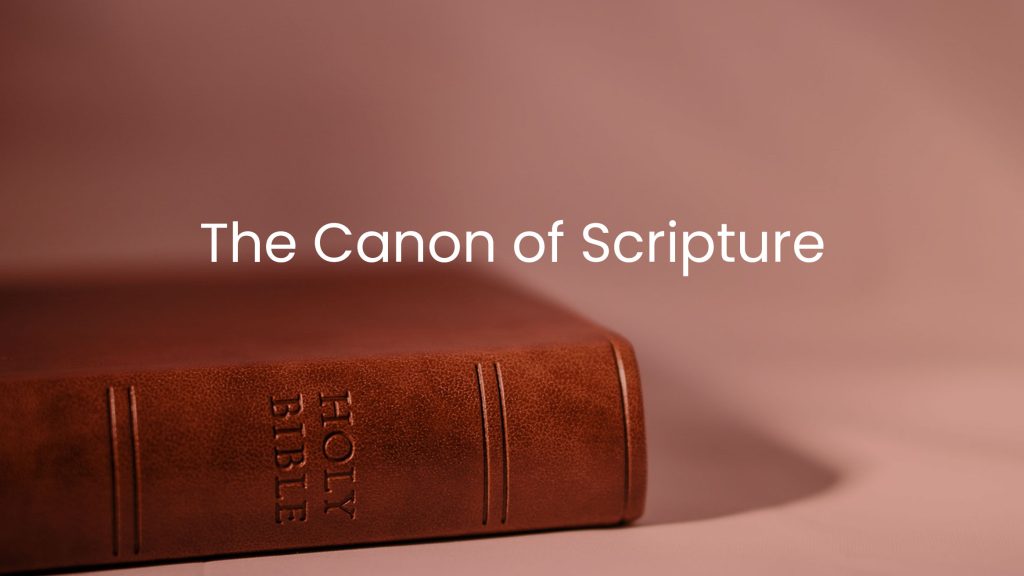|
Getting your Trinity Audio player ready...
|
No prophecy of Scripture comes from someone’s own interpretation. For no prophecy was ever produced by the will of man, but men spoke from God as they were carried along by the Holy Spirit (2 Peter 1:20-21, ESV).
Where did we get our Bible? A legitimate question.
The word “canon” has been used to describe the Old and New Testaments. Canon comes from the Greek word “kanon,” meaning “measuring rod” or “standard.” Protestants believe this “standard” or “measuring rod” consists of 66 books or 39 books in the Old Testament and 27 books in the New Testament.
But where did all the books come from? The Apostle Peter gives the best answer as “no prophecy was ever produced by the will of man, but men spoke from God as they were carried along by the Holy Spirit.”
I’ve listened to skeptics say, “Okay, 66 books written by men moved by the Holy Spirit. How do we know that we have every book? Perhaps some were ignored or lost.” Although the Old Testament contains most of the books, the canon of the Old Testament isn’t contested that much.
As one scholar writes concerning the Old Testament. . .
The writings that composed the Jewish scriptures — called the Old Testament — were fixed and had been for centuries before the coming of Jesus.
So, the debate of canonicity revolves mostly around the New Testament. And there’s room for discussion as the final “27” of the New Testament weren’t found listed together in ancient writings until Athanasius wrote the entire list in 367 AD.
What happened in those 3oo or so years between the original written manuscripts and the church making the final selections? Did the scholars of that day have a type of Manuscripts Got Talent contest with men like Origen, Eusebius, Athanasius, and other bishops casting votes, giving a thumbs up and thumbs down to differing books?
Not really; read these two explanations carefully. . .
Two key criteria emerged to determine which writings to include in the canon: first, apostolicity or does this writing have an apostle as the author or a close associate of an apostle, and second, antiquity or has the church historically recognized the voice of God speaking through to His people in this writing?
Amen.
The church did not set out to determine the canon of scripture so much as to recognize and affirm those authoritative, inspired texts that God intended for inclusion in His word.
Amen and amen.
I believe that the same Spirit who inspired men to write the original books also inspired scholars to choose the correct “27” books of our current New Testament. I believe that faith, more than the supposed intellectual brilliance of scoffing, determines our doubt or distrust in believing that the correct “27” made the cut!
Certainly, what God inspired, He also preserved so that when we read one of the gospels, Acts, one of 13 epistles of Paul, Hebrews, James, 1 & 2 Peter, 1, 2, & 3 John, Jude, and Revelation (I’ve left one out, do you know which one?) — that we are reading exactly what God intended for us to read today.
Paul writes to Timothy. . .
All Scripture is breathed out by God and profitable for teaching, for reproof, for correction, and for training in righteousness (2 Timothy 3:16).
Amen, amen, and amen!

